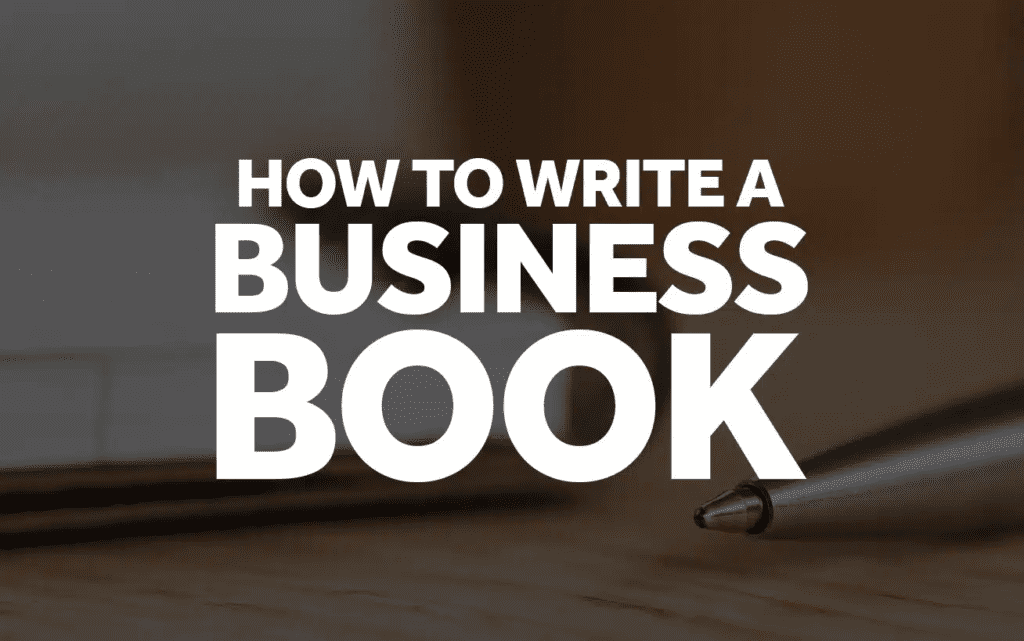Writing a business book can be a professional and personal transformative journey. It’s not just about sharing your knowledge; it’s about establishing your voice, building credibility, and opening doors to new opportunities. Let’s find out how to write a business book, why it is essential, and how it can significantly benefit your personal brand and business growth.
A business book serves as a tangible representation of your expertise and ideas. In a world of information, having a book allows you to stand out as a thought leader. It’s a powerful way to communicate your vision, values, and strategies, providing readers with valuable insights they can apply to their professional journeys.
Benefits of Personal Branding and Business Growth

Writing a business book can be a game-changer for your brand and business.
Benefits of Personal Branding
- When you publish a book, you position yourself as an authority. This goes beyond having expertise; it shows you have enough knowledge and insight to fill an entire book.
- A book can travel far and wide, reaching audiences you might never connect with otherwise. It can be shared across social media, recommended by readers, and cited in other works.
- Your brand is your professional identity. A business book allows you to articulate your values, vision, and expertise.
- A well-crafted book sets you apart from your competitors. It highlights your unique perspectives and approaches, showing potential clients and partners why they should choose you over others.
Benefits for Business Growth
- A business book serves as a powerful marketing tool. It can impress potential clients and partners.
- While book sales can provide income, the actual financial benefits often come from additional opportunities that arise. Your book can serve as the foundation for these ventures, creating multiple revenue streams contributing to your business’s growth.
- Writing a book requires exploring your industry and reflecting on your experiences thoroughly. This process can lead to new insights and innovative ideas.
- A book is a legacy that can continue influencing and inspiring long after publication. It allows you to share your knowledge and contribute to the development of your field. This lasting impact can solidify your position as a leader in your industry, ensuring that your influence endures over time.
Tips and Techniques on How to Write a Business Book

1- Create a Compelling Title
The title of your best business book holds immense value and catches readers’ attention. A compelling title can distinguish between a potential reader picking up your book and passing it by. It should be intriguing, informative, and aligned with your book’s content. The subtitle clarifies the book’s purpose and appeals to your target audience.
Check out these title and subtitle ideas:
- Your title should communicate the main theme or benefit of your book. Readers should understand what they will gain from reading it at a glance.
- Readers are looking for solutions to their problems or ways to improve. Make sure your title or subtitle promises a clear benefit or outcome.
- A title should be concise and easy to remember.
2- Identifying Your Target Audience
Identifying your target audience is crucial in writing a successful business book. Knowing who your readers are will help you tailor your content to their needs, interests, and challenges, ensuring that your book resonates with them and provides real value.
Start by clarifying the purpose of your book. What do you aim to achieve? Are you looking to share industry insights, provide practical advice, or establish yourself as a thought leader? Your purpose will guide you in identifying the right audience.
3- Pick a Style and Craft an Outline
Selecting your business book’s content is a critical step in the writing process. Start by choosing a subject you’re passionate about and deeply knowledgeable in. Consider focusing on an underdeveloped niche where you hold a favorable edge.
Writing about a new topic that hasn’t been covered extensively in your niche will allow you to provide a unique perspective, but it might require more time to develop. Conversely, existing topics often offer easier content creation but require a distinct viewpoint to stand out.
4- Writing Techniques
Choosing the right writing style for your book is crucial as it sets the tone, establishes your voice, and determines how your message is conveyed to your readers. Here are steps to help you select the most suitable writing style:
Stay true to your authentic voice and personality as an author. Your writing style should reflect your unique perspective, experiences, and worldview. Authenticity fosters connection and builds trust with your readers.
5- Methods for Collecting Data, Statistics, and Research
Collecting data, statistics, and research to support your points in a book involves several methods, each tailored to the type of information you need and the resources available. Here are some effective methods:
Gather real-world case studies, success stories, or examples that illustrate the application of concepts or principles discussed in your book.
Analyze existing research studies and meta-analyses to understand your field’s current state of knowledge and identify gaps or areas for further investigation.
6- Provide Practical Advice and Strategies
Providing practical advice and strategies in your business book is essential for helping readers apply the concepts and ideas you present to real-life situations. What specific problem or challenge are you addressing? What outcomes or results do you aim to achieve for your readers?
Incorporate interactive exercises, reflection prompts, or self-assessment quizzes to engage readers actively in learning.
7- Self-editing Tips and Techniques
Self-editing is the most important step in the writing process that allows authors to refine their work and improve its clarity, coherence, and effectiveness.
Step away from your manuscript for a while before beginning the editing process. Taking a break lets you approach your work with a new approach and a critical eye.
Invest in professional editing services to polish your manuscript to a high standard.
8- Choose a Publishing Method
When it comes to publishing your book, you have several options, each with its own advantages and challenges.
Traditional Publishing:
- Advantages: Traditional publishing offers the prestige of being associated with established publishing houses, which can provide advance payments, professional editing, cover design, marketing support, and wide distribution channels.
- Disadvantages: However, traditional publishing often involves relinquishing some control over your book’s creative and marketing aspects. Authors may also face fierce competition for book deals, long wait times for publication, and lower royalties.
Self-Publishing:
- Advantages: Self-publishing gives authors complete control over every aspect of the publishing process, from content creation to distribution. It allows faster publication timelines, higher royalties, and the freedom to experiment with niche genres or unconventional formats.
- Disadvantages: On the downside, self-publishing requires authors to invest time in editing, cover design, formatting, marketing, and distribution. Self-publishing success often depends on the author’s ability to navigate these challenges and build their audience effectively.
Hybrid Publishing:
- Advantages: Hybrid publishing combines elements of traditional and self-publishing, offering authors greater control over their work while benefiting from professional editing, design, and distribution services. This option typically involves upfront costs but can lead to higher royalties and wider exposure.
- Disadvantages: However, authors must carefully evaluate hybrid publishing options to ensure they receive value for their investment. Some hybrid publishers may charge excessive fees or offer limited distribution, so it’s essential to research and negotiate terms that align with your goals.
Start Writing Your Business Book
In the three to six months leading up to starting a business book, prioritize creating momentum and generating interest. Utilize your relationships, expertise, and available platforms to their fullest extent for promotion and marketing efforts.
Establish a straightforward book website featuring lead magnets and easy-to-follow purchase instructions supplemented by endorsements from credible sources. Develop a comprehensive promotion plan that includes outreach to media outlets, soliciting reviews, participating in interviews, hosting social media workshops, and organizing events.
This practical approach will help build experience and excitement among your audience, maximizing the impact of your book launch.












